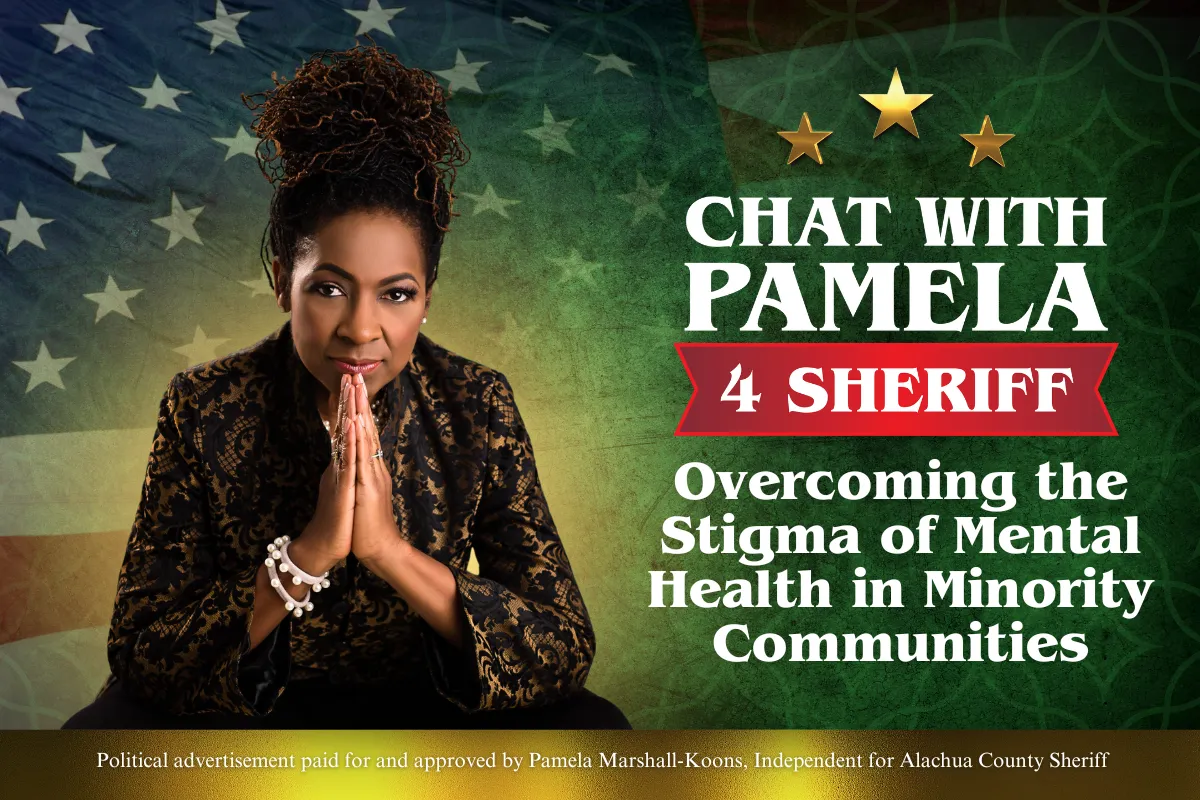ELECTION DAY: NOVEMBER 5, 2024

Submit a Question for Pamela to Answer!


Submit a Question for Pamela to Answer!
Submit a question and let Pamela answer! All of Pamela's responses can be found every Thursday in Main Street Daily News or in our weekly blog publishings below.

Overcoming the Stigma of Mental Health in Minority Communities

Overcoming the Stigma of Mental Health in Minority Communities
At our 2018 family reunion, I was struck by a candid conversation about
mental health struggles within our family. July is Minority Mental Health
Awareness Month, and I was preparing to moderate a Livestream National
Town Hall on this critical issue. My cousin shared that her son, now 22, had
been attempting suicide since he was eight. Another cousin spoke about
her daughter's depression, managed with medication. These revelations
highlighted this unspoken health challenge within our family.
An alarming trend shows African American children aged five to 15 are
committing suicide at twice the rate of their white peers. Reflecting on our
family history, I remembered my aunt’s husband and her son committed
suicide, and several of my maternal relatives had Alizemer’s. Neither of
these situations are ever openly discussed.
Ninety-five percent of African Americans enter psychiatric care through
emergency rooms. Sixty-five percent of black youth in juvenile detention
have mental illnesses. Counselors say these children would rather be seen
by their peers as being a discipline problem than to be known for taking
mental health meds. These sobering statistics also contribute to the high
number of mentally ill adults in our jails and prisons.
KEEPing silent is not the solution. Symptoms like excessive anger, bad
attitudes, outbursts, hoarding, isolation, and substance abuse often indicate
underlying mental illnesses. Experts say these behaviors are just the tip of
the iceberg, with undiagnosed mental illnesses in the driver’s seat.
Addressing our mental health isn't about blame; it's about opening up,
sharing struggles, and being willing to simply say “I need help” without the
fear of judgment.
We need safe spaces for these conversations, whether at family reunions
or around the kitchen table. Every home should have the number of the
local crisis center on their refrigerator door.
As your next Alachua County Sheriff, I will proactively address the stigma of
mental illness by helping to provide resources and support for those in
crisis before there is a need to dial 911. My public policy and legislative
experience will help us advocate for more accessible mental health
services while creating a safer, more compassionate Alachua County for
all.

Overcoming the Stigma of Mental Health in Minority Communities

Overcoming the Stigma of Mental Health in Minority Communities
At our 2018 family reunion, I was struck by a candid conversation about
mental health struggles within our family. July is Minority Mental Health
Awareness Month, and I was preparing to moderate a Livestream National
Town Hall on this critical issue. My cousin shared that her son, now 22, had
been attempting suicide since he was eight. Another cousin spoke about
her daughter's depression, managed with medication. These revelations
highlighted this unspoken health challenge within our family.
An alarming trend shows African American children aged five to 15 are
committing suicide at twice the rate of their white peers. Reflecting on our
family history, I remembered my aunt’s husband and her son committed
suicide, and several of my maternal relatives had Alizemer’s. Neither of
these situations are ever openly discussed.
Ninety-five percent of African Americans enter psychiatric care through
emergency rooms. Sixty-five percent of black youth in juvenile detention
have mental illnesses. Counselors say these children would rather be seen
by their peers as being a discipline problem than to be known for taking
mental health meds. These sobering statistics also contribute to the high
number of mentally ill adults in our jails and prisons.
KEEPing silent is not the solution. Symptoms like excessive anger, bad
attitudes, outbursts, hoarding, isolation, and substance abuse often indicate
underlying mental illnesses. Experts say these behaviors are just the tip of
the iceberg, with undiagnosed mental illnesses in the driver’s seat.
Addressing our mental health isn't about blame; it's about opening up,
sharing struggles, and being willing to simply say “I need help” without the
fear of judgment.
We need safe spaces for these conversations, whether at family reunions
or around the kitchen table. Every home should have the number of the
local crisis center on their refrigerator door.
As your next Alachua County Sheriff, I will proactively address the stigma of
mental illness by helping to provide resources and support for those in
crisis before there is a need to dial 911. My public policy and legislative
experience will help us advocate for more accessible mental health
services while creating a safer, more compassionate Alachua County for
all.

Political advertisement paid for and approved by Pamela Marshall-Koons, Independent for Alachua County Sheriff
Website Developed by Presidential Designs LLC - Elite Tier Growth Marketing
